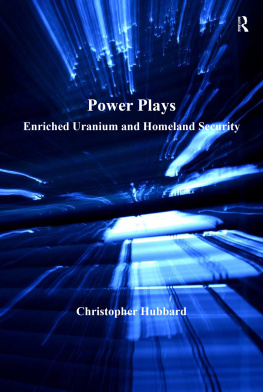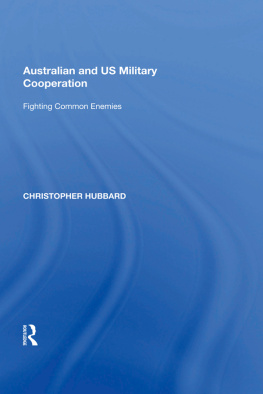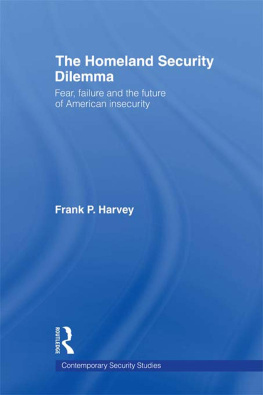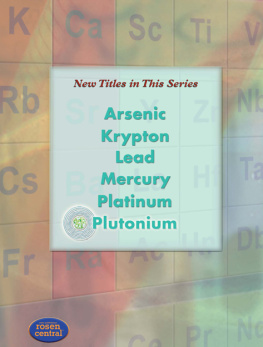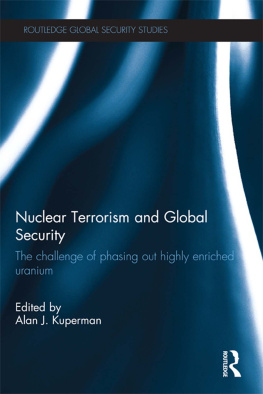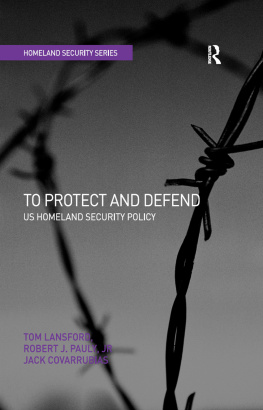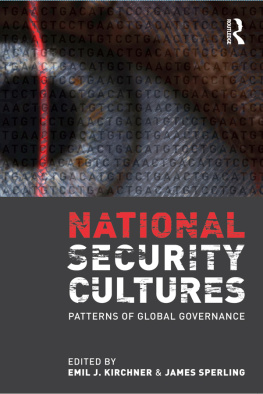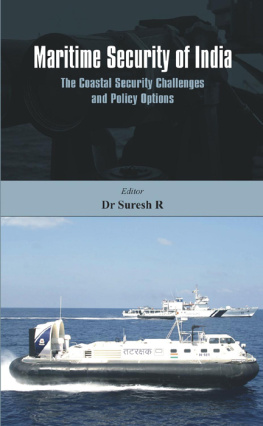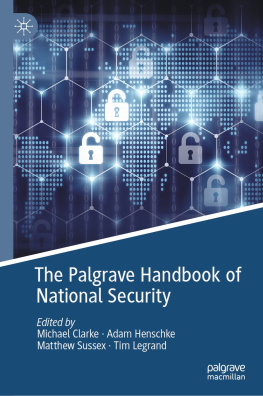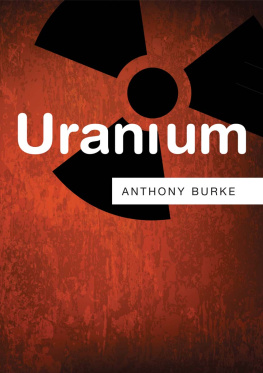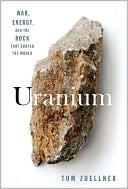POWER PLAYS
Homeland Security Series
Series Editors:
Tom Payne, University of Southern Mississippi, USA
Tom Lansford, University of Southern Mississippi, USA
This series seeks to provide a body of case studies to explore the growing importance and prominence of homeland security to national defence policy and to examine the development of homeland security within the broader context of national defence policy in the United States and other major developed states. This series will identify and analyze the major threats that are particular to homeland security, as well as those that affect broader national security interests. Comparative studies will be used to elucidate the major similarities and differences in how states approach homeland security and works which advocate new or non-traditional approaches to homeland security. The series aims to integrate information from scholars and practitioners to provide works which will influence the policy debate and examine the ramifications of policy.
Also in the series
Calculated Risks
Highly Radioactive Waste and Homeland Security
Kenneth A. Rogers and Marvin G. Kingsley
ISBN 978-0-7546-7133-6
The State and Terrorism
National Security and the Mobilization of Power
Joseph H. Campos II
ISBN 978-0-7546-7192-3
Comparative Legal Approaches to Homeland Security and Anti-Terrorism
James Beckman
ISBN 978-0-7546-4651-8
To Protect and Defend
US Homeland Security Policy
Tom Lansford, Robert J. Pauly, Jr and Jack Covarrubias
ISBN 978-0-7546-4505-4
Power Plays
Enriched Uranium and Homeland Security
CHRISTOPHER HUBBARD
Curtin University of Technology, Australia
First published 2010 by Ashgate Publishing
Published 2016 by Routledge
2 Park Square, Milton Park, Abingdon, Oxon OX14 4RN
711 Third Avenue, New York, NY 10017, USA
Routledge is an imprint of the Taylor & Francis Group, an informa business
Copyright Christopher Hubbard 2010
All rights reserved. No part of this book may be reprinted or reproduced or utilised in any form or by any electronic, mechanical, or other means, now known or hereafter invented, including photocopying and recording, or in any information storage or retrieval system, without permission in writing from the publishers.
Notice: Product or corporate names may be trademarks or registered trademarks, and are used only for identification and explanation without intent to infringe.
Christopher Hubbard has asserted his right under the Copyright, Designs and Patents Act, 1988, to be identified as the author of this work.
British Library Cataloguing in Publication Data
Hubbard, Christopher, 1953-
Power plays : enriched uranium and homeland security. -- (Homeland security)
1. Nuclear industry--Security measures. 2. Uranium enrichment--Safety measures. 3. Uranium enrichment--Government policy. 4. National security. 5. Nuclear nonproliferation--International cooperation.
I. Title II. Series
363.179956-dc22
Library of Congress Cataloging-in-Publication Data
Hubbard, Christopher, 1953-
Power plays : enriched uranium and homeland security / by Christopher Hubbard.
p. cm. -- (Homeland security)
Includes index.
ISBN 978-0-7546-7693-5 (hardback) -- ISBN 978-0-7546-9392-5 (ebook)
1. Highly enriched uranium--Government policy--United States. 2. Highly enriched uranium--Safety measures. 3. Uranium enrichment--Government policy--United States. 4. Uranium en-richment--Safety measures. 5. National security--United States. 6. Nuclear nonproliferation--Government policy--United States. 7. Nuclear terrorism--United States--Prevention. I. Title.
TK9152.165.H835 2010
363.17995610973--dc22
200904713
ISBN 9780754676935 (hbk)
ISBN 9781315601823 (ebk)
Contents
For Paul, Pamela, Richard and Jenny
Preface
In a letter from its Co-Chairman in the opening pages of the Annual Report of the think tank the Nuclear Threat Initiative for 2007, entitled Vision and Action for a Safer World, former US Senator Sam Nunn and philanthropist Ted Turner made the following startling claim:
In October of 2001, top US government officials received a highly classified intelligence report, warning that terrorists had acquired a 10-kiloton nuclear bomb and planned to smuggle it into New York City, where it could-if detonated-destroy much of lower Manhattan and kill hundreds of thousands of people. This intelligence report was later judged to be false. But it was never judged to be implausible. (Nuclear Threat Initiative 2007a, 2)
The possibility of an unannounced and devastating nuclear attack on a crowded city by a terrorist group, or indeed the armed forces of a nation state, is the nightmare from which the world may not awaken. In 2010, the odds of such a tragedy happening are growing ever shorter. Like it or not, the know-how necessary to mount an attack of this kind already exists in respect of a number of vulnerable technologies and practices, such as uranium enrichment, the transportation and storage of enriched uranium and plutonium, and the widely available engineering and metallurgy needed to construct crude nuclear weapons.
Early in 2008, former United States Secretaries of State George Schulz, William Perry and Henry Kissinger, together with Senator Nunn, called in The Wall Street Journal for urgent and concerted global action to deny operational nuclear weapons to terrorists, and ultimately end their nuclear threat to the entire world. Among a range of other initiatives, these distinguished statesmen called for dramatically higher standards to be applied to the security of nuclear weapons and materials in the more than 40 countries throughout the world which hold them. In addition, they called for an international program to manage the weapons proliferation risks accompanying the nuclear fuel cycle in an era of growing interest in nuclear energy.
While the United States and Russia are responsible for some 95 per cent of the worlds nuclear warheads, and occupy central roles in the evolution of global nuclear arms control and disarmament initiatives, as well as non-proliferation diplomatic architectures and nuclear technologies, they alone cannot succeed in stemming the tide of nuclear weapons diffusion. The discussions and analyses which follow will help to explain why this is so, while also helping to shed some more, much needed, light on the nature and scope of what still remains to be done.
The central aim of this book is to offer a comprehensive and concise exploration of the effects on national/state security policy and discourse of the production, storage, transportation, safeguarding, export and use of enriched uranium and by extension plutonium. Its examination will be developed with the needs of the informed generalist in mind, and thus will avoid unnecessarily complex discussion of highly technical matters, as well as the professional nuclear-related jargon which often impedes popular understanding. Nevertheless, this analysis examines a wide range of interlinked geopolitical, security and technical issues and challenges for national and global governance in the dual fields of nuclear power generation and the proliferation of nuclear weapons materials and technologies.

